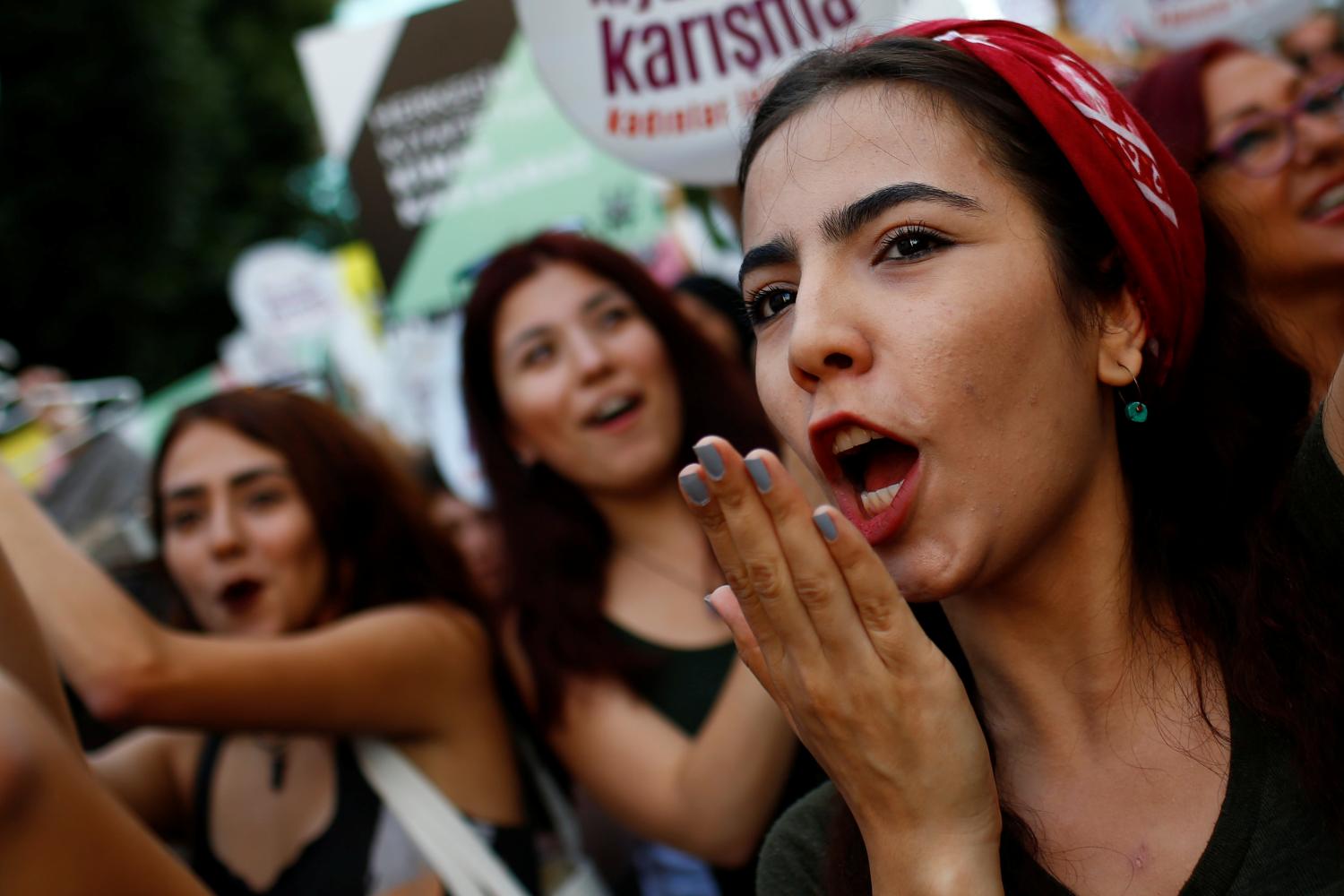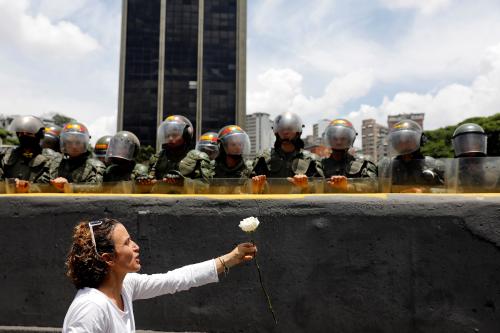This working paper is part of a series of papers on democracy, security, and violent extremism prepared for the Community of Democracies’ Democracy and Security Dialogue. The project seeks to foster greater collaboration among democratic governments, donors, civil society, and academics to improve security outcomes and create a more conducive environment for the strengthening of democracy around the world
SUMMARY
In preparation for the Community of Democracies’ Democracy and Security Dialogue, Brookings Institution researchers studied how the quality of democracy is related to levels of gender equality and women’s physical security. The paper follows the definitions of gender equality and gender adopted by U.N. Women. Without controlling for other variables, our bivariate analysis found that a country’s democratic quality is moderately correlated with that country’s gender equality and physical security of women. Higher quality democracies exhibited smaller gender gaps in the political, educational, health, and economic arenas, and lower levels of violence against women. Stronger autocracies in contrast, had wider gaps between genders and higher levels of violence against women. Furthermore, there is some evidence suggesting that strong democratic qualities are necessary but not sufficient conditions for gender equality and security. Lastly, the evidence suggests that the aforementioned correlation does not extend to countries with weak to moderate levels of democracy.
In what follows, the authors first discuss the conceptualization and measurement of gender equality, women’s physical security, and democracy. Second, for our empirical strategy, they conduct a mean analysis, regression analysis, and data inspection. Finally, they discuss the results.
The Brookings Institution is committed to quality, independence, and impact.
We are supported by a diverse array of funders. In line with our values and policies, each Brookings publication represents the sole views of its author(s).




